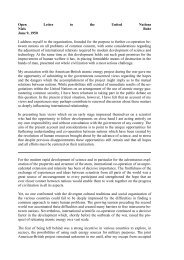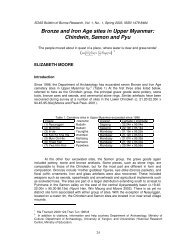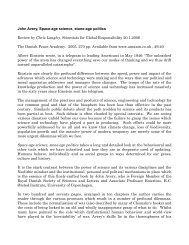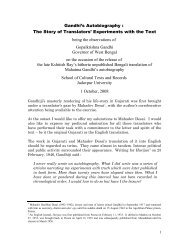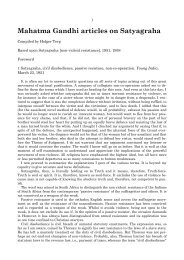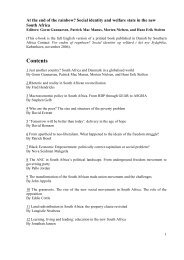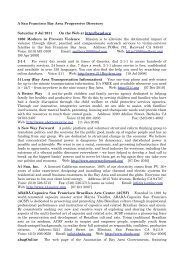THE SLAVERY OF OUR TIMES PREFACE / INTRODUCTION
THE SLAVERY OF OUR TIMES PREFACE / INTRODUCTION
THE SLAVERY OF OUR TIMES PREFACE / INTRODUCTION
You also want an ePaper? Increase the reach of your titles
YUMPU automatically turns print PDFs into web optimized ePapers that Google loves.
It is undeniable that under the present state of things most varied articles are<br />
produced with great economy of exertion, thanks to machinery, and thanks especially<br />
to the division of labor which has been brought to an extreme nicety and carried to the<br />
highest perfection, and that those articles are profitable to the manufacturers, and<br />
that we find them convenient and pleasant to use. But the fact that these articles are<br />
well made and are produced with little expenditure of strength, that they are<br />
profitable to the capitalists and convenient for us, does not prove that free men would,<br />
without compulsion, continue to produce them. There is no doubt that Krupp, with the<br />
present division of labor, makes admirable cannons very quickly and artfully; N. M.<br />
very quickly and artfully produces silk materials; X, Y, and Z. produce toilet-scents,<br />
powder to preserve the complexion, or glazed packs of cards, and K produces whiskey<br />
of choice flavor, etc.; and, no doubt, both for those who want these articles and for the<br />
owners of the factories in which they are made it is very advantageous. But cannons<br />
and scents and whiskey are wanted by those who wish to obtain control of the Chinese<br />
market, or who like to get drunk, or are concerned about their complexions; but there<br />
will be some who consider the production of these articles harmful. And there will<br />
always be people who consider that besides these articles, exhibitions, academies, beer<br />
and beef are unnecessary and even harmful. How are these people to be made to<br />
participate in the production of such articles?<br />
But even if a means could be found to get all to agree to produce certain articles<br />
(though there is no such means, and can be none, except coercion), who, in a free<br />
society, without capitalistic production, competition, and its law of supply and<br />
demand, will decide which articles are to have the preference? Which are to be made<br />
first, and which after? Are we first to build the Siberian Railway and fortify Port<br />
Arthur, and then macadamize the roads in our country districts, or vice-versa? Which<br />
is to come first, electric lighting or irrigation of the fields? And then comes another<br />
question, insoluble with free workmen, Which men are to do which work? Evidently all<br />
will prefer haymaking or drawing to stoking or cesspool cleaning. How, in<br />
apportioning the work, are people to be induced to agree?<br />
No statistics can answer these questions. The solution can be only theoretical; it may<br />
be said that there will be people to whom power will be given to regulate all these<br />
matters. Some people will decide these questions and others will obey them.<br />
But besides the questions of apportioning and directing production and of selecting<br />
work, when the means of production are communalised, there will be another and<br />
most important question, as to the degree of division of labor that can be established<br />
in a socialistically organized society. The now existing division of labor is conditioned<br />
by the necessities of the workers. A worker only agrees to live all his life underground,<br />
or to make the one-hundredth part of one article all his life, or to move his hands up<br />
and down amid the roar of machinery all his life, because he will otherwise not have<br />
means to live. But it will only be by compulsion that a workman, owning the means of<br />
production and not suffering want, can be induced to accept such stupefying and souldestroying<br />
conditions of labor as those in which people now work. Division of labor is<br />
undoubtedly very profitable and natural to people; but if people are free, division of<br />
labor is only possible up to a certain very limited extent, which has been far<br />
overstepped in our society.





